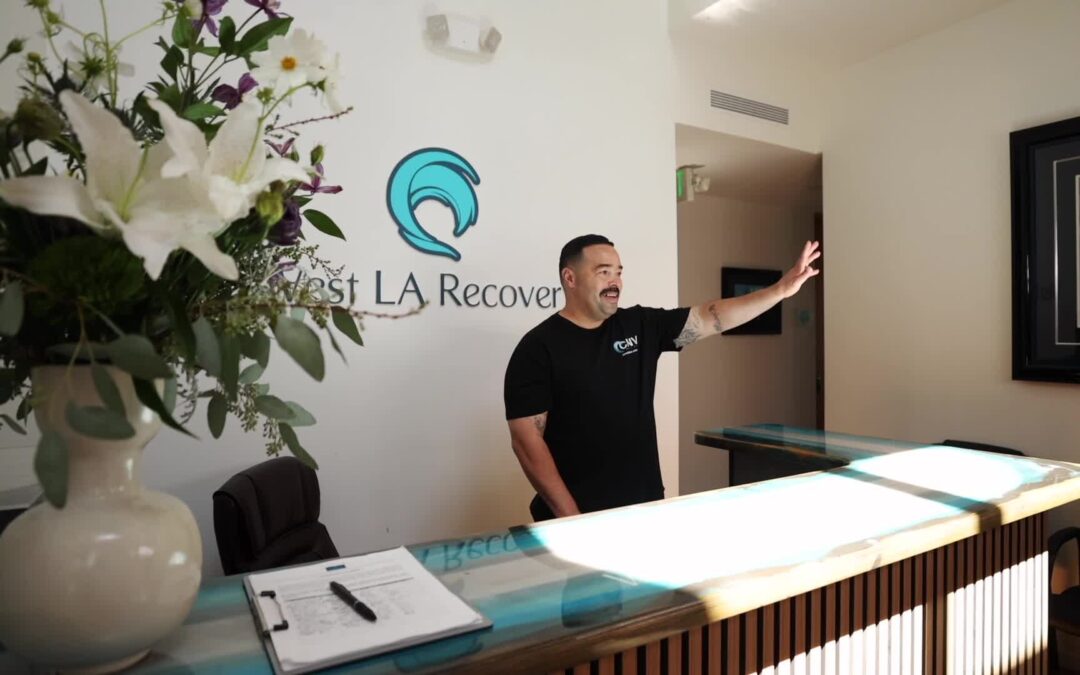Understanding Mood Swings in Addiction Recovery
1. Biological Factors Influencing Mood Swings After Quitting Drugs
When you stop using drugs, your brain undergoes significant changes that can lead to emotional dysregulation. One of the main reasons for these mood swings is neurotransmitter imbalance.
Why Do My Feelings Change So Much After Quitting Drugs?
Quitting drugs disrupts the balance of neurotransmitters in your brain. Neurotransmitters are chemical messengers that help regulate mood, emotions, and overall mental health. Here’s how this works:
- Dopamine: Often referred to as the “feel-good” neurotransmitter, dopamine plays a crucial role in how we experience pleasure and motivation. Many drugs artificially increase dopamine levels, leading to intense feelings of euphoria. When you quit, dopamine levels can plummet, causing feelings of depression and a lack of motivation.
- Serotonin: This neurotransmitter helps regulate mood, sleep, and appetite. Drug use can alter serotonin levels, leading to imbalances that result in anxiety and irritability once you stop using.
- GABA (Gamma-Aminobutyric Acid): GABA is responsible for calming the nervous system. Drugs like alcohol and benzodiazepines enhance GABA activity, creating a sense of relaxation. Upon quitting these substances, you might experience heightened anxiety and restlessness due to reduced GABA activity.
Neurotransmitter imbalances aren’t just about feeling down or anxious; they also impact other aspects of emotional well-being:
- Emotional Numbness or Flat Affect: Without the artificial boost from substances, you may find it difficult to feel joy or excitement.
- Increased Sensitivity: Your emotional responses might become more intense or erratic as your brain readjusts.
- Sleep Disruptions: Poor sleep can exacerbate mood swings by affecting neurotransmitter levels further.
Understanding these biological factors helps explain why quitting drugs can feel like an emotional rollercoaster. The good news is that these imbalances typically improve with time as your brain gradually restores its natural equilibrium. Each person’s recovery timeline varies based on factors like the type of substance used, duration of use, and individual biology.
At West LA Recovery, located in the heart of Los Angeles, we are dedicated to providing compassionate and comprehensive addiction treatment services designed to address these unique challenges. Our goal is to support you through this profound journey towards sobriety by offering personalized care tailored to your needs.
2. Psychological Factors Impacting Emotions During Recovery
Mood swings are a common and challenging aspect of addiction recovery. These emotional highs and lows often leave individuals wondering, “Why do my feelings change so much after quitting drugs?” The answer lies in the psychological effects that accompany the journey to sobriety.
Overview of Withdrawal Symptoms and Their Impact on Emotions
Withdrawal symptoms can vary widely depending on the substance used but often include:
- Anxiety and depression
- Irritability and agitation
- Fatigue and sleep disturbances
These symptoms can significantly impact emotions, leading to unpredictable mood swings.
Exploration of Feelings of Guilt and Shame Associated with Past Substance Use
Many individuals in recovery experience intense feelings of guilt and shame about their past actions while using substances. These emotions can be overwhelming and contribute to emotional dysregulation. Acknowledging these feelings is crucial, as it opens the door for healing and personal growth.
Description of Negative Feedback Loops in Addiction
Addiction creates negative feedback loops that exacerbate emotional instability. When an individual uses substances to cope with negative emotions, they may temporarily feel relief. However, this relief often leads to increased dependence on the substance, perpetuating a cycle of emotional turmoil.
Recovery disrupts these loops but leaves a vacuum where old habits once existed. This period of adjustment can lead to significant mood fluctuations as the brain recalibrates its responses without the influence of drugs.
Understanding these psychological factors is essential for navigating the complex emotional landscape of addiction recovery.
Navigating the Recovery Process: Coping with Mood Swings After Quitting Drugs
1. Therapeutic Approaches to Manage Mood Swings After Quitting Drugs
Quitting drugs is a significant step toward recovery, but it often comes with emotional turbulence. The question, “Why do my feelings change so much after quitting drugs?” is common among those in recovery. Understanding and managing these mood swings can be challenging, but therapeutic approaches offer effective coping mechanisms.
Therapy Options for Mood Swings After Quitting Drugs
Several therapy options have proven beneficial in managing emotions during the recovery journey:
- Cognitive Behavioral Therapy (CBT): Focuses on identifying and changing negative thought patterns that contribute to mood swings. CBT helps you develop healthier ways of thinking and reacting to emotional triggers.
- Dialectical Behavior Therapy (DBT): Particularly useful for those with intense emotional reactions. DBT combines cognitive-behavioral techniques with mindfulness practices to help regulate emotions, tolerate distress, and improve interpersonal relationships.
- Acceptance and Commitment Therapy (ACT): Encourages accepting negative thoughts and feelings rather than fighting them. ACT emphasizes living in alignment with your values while acknowledging emotional discomfort as part of the recovery process.
Intensive Therapeutic Programs
In addition to individual therapy options, more structured programs such as a Partial Hospitalization Program or an Intensive Outpatient Program can provide comprehensive support during this challenging time. These programs often combine various therapeutic approaches and offer a supportive environment for individuals navigating their recovery journey.
Techniques for Enhancing Emotional Regulation Skills
Effective emotional regulation is essential for maintaining stability during addiction recovery. Here are some practical techniques:
- Mindfulness-Based Practices: Mindfulness involves being present in the moment without judgment. Techniques such as deep breathing exercises, progressive muscle relaxation, and guided imagery can help calm the mind and reduce anxiety.
- Journaling: Writing about your thoughts and emotions can provide insight into your mood patterns and triggers. Moreover, regular journaling helps you process complex feelings and track your progress over time.
- Physical Activity: Exercise releases endorphins, which are natural mood lifters. Engaging in regular physical activity like walking, yoga, or swimming can significantly enhance emotional well-being.
- Healthy Sleep Hygiene: Establishing a consistent sleep routine is crucial for emotional regulation. Aim for 7-9 hours of quality sleep per night by creating a calming bedtime ritual and avoiding stimulants like caffeine close to bedtime.
Understanding these therapeutic approaches and techniques equips you with effective tools for navigating the ups and downs of your recovery journey. By integrating these strategies into daily life, you can foster a more balanced emotional state as you continue to heal from addiction.
2. Building a Support System During Recovery from Drug Addiction
Navigating mood swings after quitting drugs can be challenging, but a strong support system is crucial in managing these fluctuations. Here’s why:
1. Emotional and Social Support
Surrounding yourself with supportive friends, family, and peers can provide emotional stability. These individuals offer encouragement, understanding, and a sense of belonging, which are vital during the recovery journey.
2. Shared Experiences
Engaging with others who have faced similar struggles can be incredibly validating. Support groups and online communities are excellent resources for sharing experiences and coping mechanisms.
Resources for Managing Mood Swings:
Support Groups:
- Narcotics Anonymous (NA): A fellowship of individuals who share their experiences, strength, and hope to solve common problems.
- SMART Recovery: Focuses on self-empowerment and mutual support to overcome addiction.
Online Communities:
- Reddit’s r/stopdrinking: A subreddit where people share their journeys and offer advice.
- InTheRooms: An online social network for the global recovery community.
Therapy Options:
- Cognitive Behavioral Therapy (CBT): Helps in identifying and changing negative thought patterns.
- Dialectical Behavior Therapy (DBT): Focuses on improving emotional regulation skills.
Local Resources:
- Many cities have local addiction recovery centers that offer group therapy sessions.
- Community centers often host support meetings that are free or low-cost.
Building a robust support system starts with reaching out, connecting with others in similar situations, and utilizing available resources to foster emotional stability. Furthermore, addressing underlying psychological issues in recovery is essential for managing mood fluctuations effectively. By doing so, you make the journey toward sobriety more manageable and less isolating, ensuring a stronger foundation for long-term success.
Coping Strategies for Managing Mood Fluctuations Post-Substance Use
Managing mood swings after quitting drugs can be a challenge, but incorporating some practical self-care strategies can make a difference. Here are some ways to maintain emotional balance:
Self-Care Practices
- Exercise: Regular physical activity releases endorphins, which significantly help improve mood. For example, a simple walk, yoga session, or workout at the gym can provide noticeable benefits.
- Nutrition: Eating a balanced diet, especially one rich in fruits, vegetables, lean proteins, and whole grains, supports brain health and stabilizes mood. In contrast, avoid excessive sugar and caffeine, as they can lead to mood swings and energy crashes.
- Sleep: Getting enough rest is crucial for emotional well-being. Therefore, aim for 7-9 hours of sleep each night to help regulate your emotions and maintain overall mental health.
Mindfulness Techniques for Emotional Regulation
- Meditation: Daily meditation practice can reduce stress and increase emotional awareness. Apps like Headspace or Calm offer guided sessions.
- Deep Breathing Exercises: Practicing deep breathing helps calm the nervous system. Try inhaling for four seconds, holding for four seconds, and exhaling for four seconds.
- Journaling: Writing down your thoughts and feelings provides an outlet for emotional expression and helps identify triggers.
These self-care practices and mindfulness techniques can be powerful tools in navigating mood fluctuations during recovery.
Conclusion
Embracing the journey towards emotional stability after quitting drugs can be incredibly challenging yet profoundly rewarding. Mood swings are a common part of this process, and understanding why they occur is crucial for building resilience in recovery from drug addiction.
Why do my feelings change so much after quitting drugs? This question often plagues those in recovery. The answer lies in the complex interplay of biological and psychological factors that influence our emotions. From neurotransmitter imbalances to the psychological aftermath of substance use, each element plays a role in shaping our emotional landscape.
As you navigate this path, remember:
- Emotional fluctuations are normal and temporary.
- Seeking help through therapy and support systems can provide essential guidance.
- Self-care practices like exercise and nutrition significantly impact mood regulation.
Recovery is a marathon, not a sprint. By understanding the underlying causes of mood swings and utilizing effective coping strategies, you pave the way for a more stable and fulfilling life.
Additional Resources on Mood Swings After Quitting Drugs
If you’re wondering, “Why do my feelings change so much after quitting drugs?”, there are many resources available to help you understand and manage these mood swings:
- National Institute on Drug Abuse – Comprehensive information on drug addiction and recovery.
- Substance Abuse and Mental Health Services Administration – Resources for coping with substance use disorders.
- American Psychological Association – Articles on mental health challenges related to addiction.
- Understanding Addiction Recovery – An overview article about the stages of addiction recovery.
- Coping with Withdrawal Symptoms – Detailed guide on managing withdrawal symptoms during recovery.
These resources offer valuable insights and practical advice to support your journey towards emotional stability. If you need further assistance or have specific questions, don’t hesitate to reach out through our contact page.







